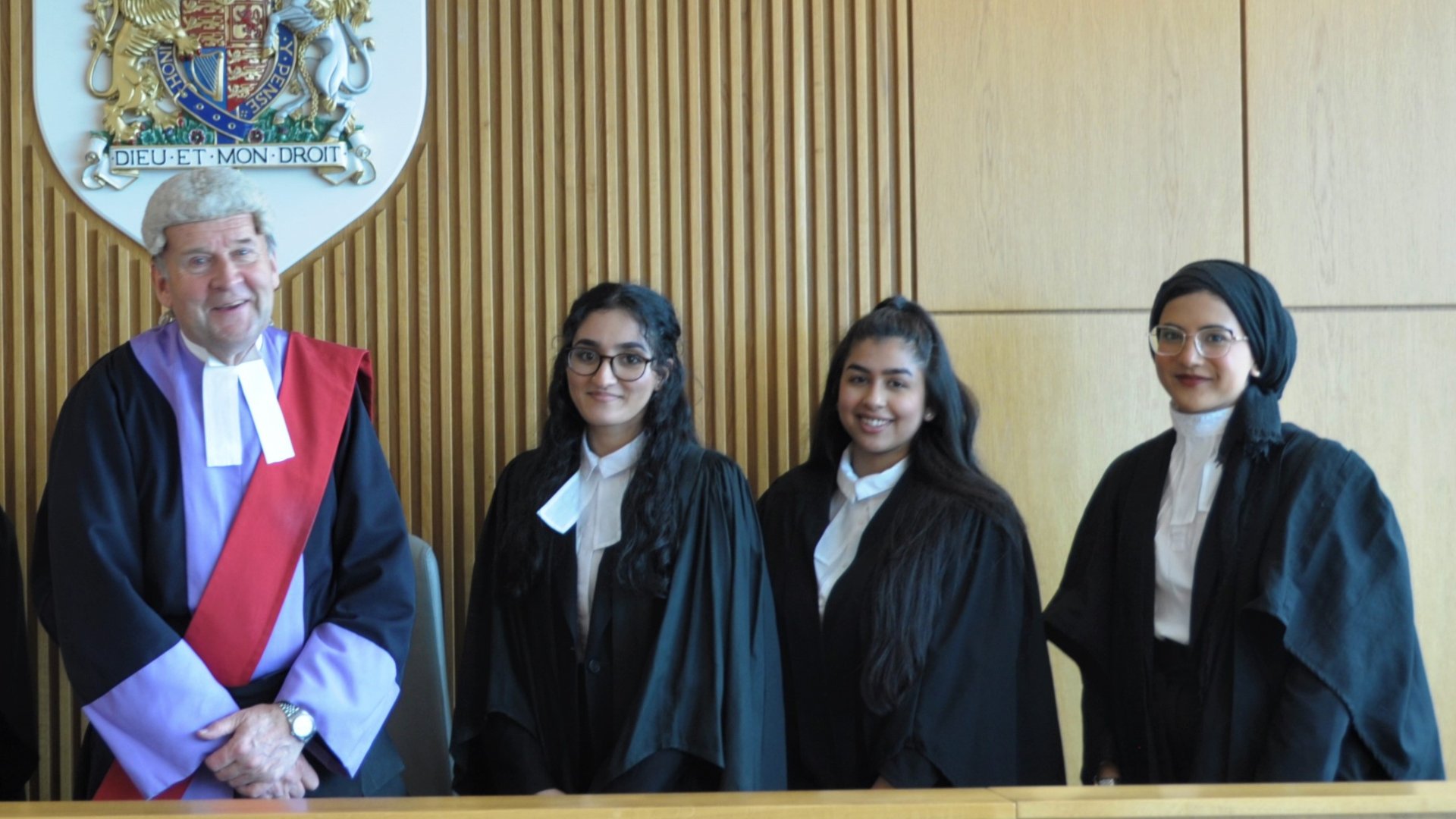
How to boost your employability as a law student and get your dream graduate job

Fiza Ditta
Law graduate
Hi! I'm Fiza Ditta and I have just graduated this summer with a first-class honours degree in Law.
While at university, I participated in multiple events that helped improve my employability skills such as the careers fair, mentoring event, and mooting competition. All these events were different in the types of skills they provided, but collectively, it was valuable for me to develop key transferrable skills. In this blog, I will discuss some of my experiences as a law student, and how I worked to maximise my chances of having a successful career in law.
Law careers fair
The law careers fair event, which took place in my final year, was very insightful as I was able to walk away with valuable knowledge of the key elements law firms look for and an in-depth understanding of the legal profession. Attending this event was a no-brainer because it was the first careers fair this year due to COVID-19, which was held specifically for law students. I thought it would be helpful to attend so that I could widen my career choices and network with legal professionals and overall boost my skillset. 25 law firms attended the event, including Oakwood solicitors, Pinsent Manson, First4Lawyers, Ridley and Hall, Switalskis and so much more. Local authority departments and the University’s postgraduate team also attended. The event allowed me to gain knowledge about the different routes I could explore. An aspect I found very valuable was that most of the exhibitors were graduates of the University of Huddersfield. This was very beneficial because they willingly shared their journeys, how to boost your CV and cover letter for employment and shared the overall nature of working at a law firm.
During this event, there was space given to hear from a panel of solicitors and professionals. They spoke about their journeys into law and openly shared advice with the students through their conversations and questions at the end of the panel. One thing that was memorable from their advice was that even though we are on this journey, we must remain open-minded when it comes to our careers and try to make as many connections as possible by attending more networking opportunities like this one. If you’re thinking of attending a career fair, I would recommend preparing questions that you want to ask, and not just to your favourite law firms but to the ones you hadn’t previously considered too.
Law mentoring event
The law mentoring event was designed for students in their third and fourth years. The list of law firms that attended included, Ramsdens, Walker Morris, Irwin Mitchell, Ridley and Hall, The Crown Prosecution Service, and others. The event allowed us to network with the solicitors and professionals during the ‘speed-networking’ session. We were partnered with two solicitors who were able to answer our questions, and after ten minutes, we switched tables to another couple of solicitors and professionals for four cycles - just like a speed-dating experience! I tried to make sure that my questions were personal and required a detailed answer. An example of the type of questions I asked was ‘what was the biggest challenge for you in your career progression?’ and ‘what area do you specialise in and what do you enjoy the most about it? When I was paired with my mentor, I found it useful to send her my CV to look at. She gave me helpful feedback on what I can improve on and what I had done well.
At the event, it was very helpful to find out more about alternative employment routes. Hearing from lawyers and their experiences was insightful and eye-opening. The solicitors and professionals were very friendly and approachable, which made it easy to ask questions and learn from them too. I would advise students who plan to attend to do some research on the people or companies attending - this helped me a lot with preparing questions. One of the main things I learned from this event was to continue to go at my own pace and be willing to get as much experience as possible.

Mooting competition
Mooting is a legal argument based on a fictitious set of facts. It gives law students the chance to see what it is like to advocate in court arguing for either the appellant or respondent. The process consists of researching the legal issues, drafting up a court bundle, and presenting arguments against an opposing counsel before a judge who will rule at the end based on the legal issues, quality of individual skills, and the best team overall. I had the honour of participating in the Criminal Law Moot Competition back in April 2022, which was presided over by a real Crown Court Judge. This was the first time I advocated in front of a real judge, so I was nervous but the level of support I had throughout from our lecturers and fellow teammates made it much easier. The preparation was the most important part, and we were put into teams of four for each side, which helped as we were able to bounce ideas off each other.
This was the first time I took part in an official moot with all the formalities, which included addressing the judge a certain way, dressing professionally, formally presenting arguments, and general courtroom etiquette like standing up when the judge is addressing you. At first, it was difficult to put this into practice but after a while, it became second nature through practising and perfecting the level of articulating arguments clearly and in an engaging way. Overall, the most satisfying part was arguing the case in the courtroom and putting all that research and preparation into a cohesive oral argument. The skills that mooting provides are improved advocacy, public speaking, research, drafting and the ability to formulate legal arguments, respond to judges, and overall logical and analytical thinking skills.
The top advice that I would give any student who wants to take part in mooting or is in the process is to practice, practice and practice advocacy! This is the key that can make or break your case. One thing I learnt was that no matter how much the case is not in your favour, the way you argue your case can change everything. However, it’s not just about advocating, the build-up to the day is what counts too because your court bundle needs to be perfect such as the structure and quality because this is the first thing the judge will see.
To summarise
To round up, my top tip for any law student would be to pursue every opportunity as early on as possible and get involved in career events and participate in mooting at least once during your undergraduate degree. Also don’t forget that the best way to boost your employability as a law student is through networking with employers and professionals to create meaningful connections, which helps when it comes to finding legal experience, shadowing, and other work opportunities. Another initiative that the Law School offers to support students with their employability skills is the Legal Advice Clinic, a student-led project based in the town centre of Huddersfield. The Legal Advice Clinic works with the local community to help provide a bridge between those who do not qualify for legal aid and those who cannot afford legal advice themselves. The experience that students gain by taking part in this initiative is invaluable, as it allows them to get hands-on legal experience through real-life cases, with real clients.
Good luck to others studying law and those who are considering it! Studying Law was extremely interesting, and I enjoyed learning about the more controversial aspects of the legal system. It broadened my understanding of the world we live in and gave me a range of transferrable skills that I can now apply to my Master’s… and beyond.
To learn about the range of courses offered at the Law School, please visit https://courses.hud.ac.uk/.
To find out about the Legal Advice Clinic, please visit https://www.hud.ac.uk/about/schools/huddersfield-business-school/legal-advice-clinic/.